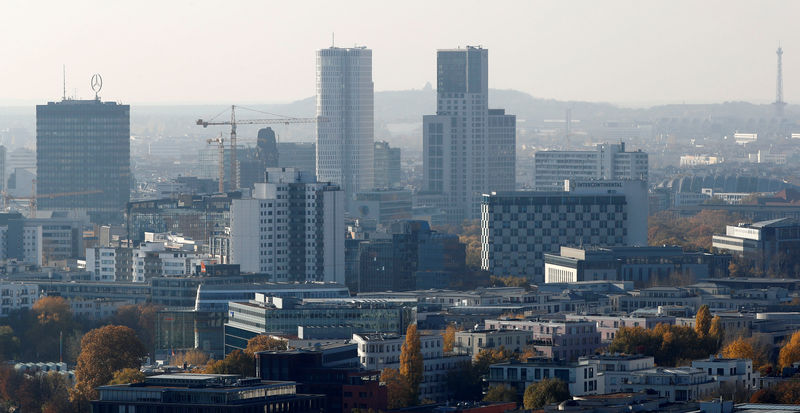BERLIN (Reuters) - Trade frictions, risks linked to Britain's possible departure from the European Union this year without a deal and weaker growth in emerging markets are putting the brakes on a nine-year upswing in Europe's economic powerhouse.
German industrial orders fell more than expected in November, data showed, adding to a slew of recent indicators showing Germany's exporters are suffering from the trade dispute between China and the United States.
Contracts for goods 'Made in Germany' fell by 1 percent - substantially more than the 0.4 percent slip economists had forecast - after rising by a revised 0.2 percent the previous month, the German statistics office said on Monday.
An uptick of 2.4 percent in domestic orders was unable to offset a 3.2 percent fall in orders from abroad, driven by a particularly stark 11.6 percent drop in eurozone demand.
Coming after German business morale fell in December, the latest data add to signs that the mood in Germany's economy is darkening.
Another survey, released on Friday, showed a drop in both new orders and business confidence slowed growth in Germany's services sector to a 27-month low in December.
German engineering group Siemens (DE:SIEGn) bucked the trend of boardroom caution when it said in November it expects to shrug off global geopolitical tensions and notch up "moderate" sales growth during its 2019 fiscal year.
U.S. officials are heading to Beijing this week for the first face-to-face talks since U.S. President Donald Trump and China's President Xi Jinping in December agreed to a 90-day truce in the trade war as they sought to strike a deal.
Separate German figures released on Monday showed retail sales up 1.4 percent on the month in November.
The German government hopes tax cuts for middle and high income earners as well as higher child allowances that come into effect in January will boost consumption, which has replaced exports as the main driver of growth.

Germany's jobless total fell by more than expected in December, data showed on Friday, keeping the unemployment rate at a record low. The figures underlined the strength of a labor market that has been supporting a consumption-led growth cycle.